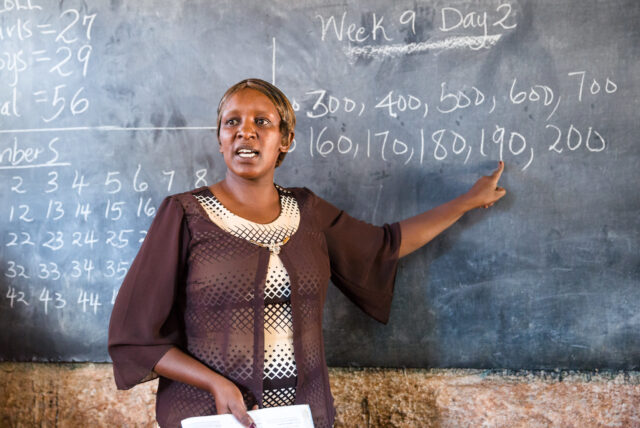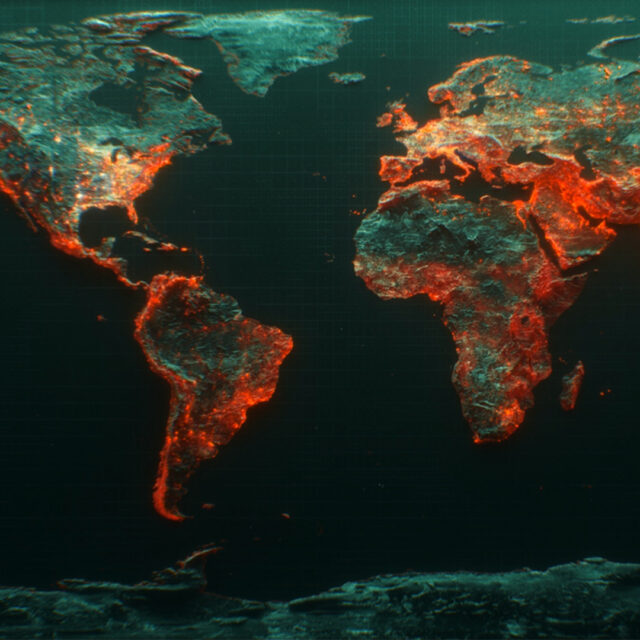Diana Ayala is a Youth Leader for Global Partnership for Education. She raises awareness of the barriers to education and aims to increase the ambition of leaders for financing education and development.
More than a year after the first announcement of the COVID-19 pandemic by the WHO, the announcement of COVID-19 vaccines has brought hope that millions of lives can be saved and this virus that has taken the lives of more than 2 million people around the world can be eradicated.
Teachers are essential workers
Today more than ever teachers should be considered as essential workers, as they prepare the next generation of children and youth to be influencers, leaders, decision-makers, doctors, and much more. They play an important role in the development of a nation by educating and training the individuals that will build the nation.
The impact of the pandemic has led to millions of children being out of school for months, and distance learning measures have reached a limited number of children. In addition, even when children are able to access remote learning, it is often not as effective as being in a classroom with their schoolmates and directly interacting with teachers. Therefore, the safe reopening of schools is critical to stem the loss of learning and ensure that an entire generation is not left behind. Placing teachers on the priority list for receiving COVID vaccines, as recommended by the WHO, is an important step to reopening schools safely.
The urgent need to reopen schools safely
The safe reopening of schools is a high priority for leaders, not least because many distance learning options rely on access to technology that is nowhere near-universal. National Geographic reports that only 22% of Africa’s population was able to go online in 2016, compared to 75% of the population in the United States. This shows the limited capacity of internet-based learning options and highlights the importance of restoring access to classrooms and in-person learning.
Africa is the world’s youngest continent, and youth will soon make up over half the continent’s total population, according to the African Union. In order to be productive members of their communities and contribute to the development of their countries, these young people need to be equipped with the skills and knowledge for success that can only come through education. It is impossible to ensure sustainable development if the future of this generation is compromised due to a lack of investment in education. Every effort must be made to provide access to education, and this includes restoring classroom learning.
Africa is not the only continent struggling with ensuring access to virtual learning while schools are closed. Gaps have also been exposed in several Latin American countries around access to education, access to electricity, and access to technology and the tools for virtual learning. Even in developed countries like the US, there are pockets of poverty where children are not able to access the internet at home or do not have individual devices. This is why safely reopening schools and vaccinating teachers must be a priority.
Investing in our future
Investing in COVID vaccinations for teachers is an investment in education and the future. Vaccinating teachers helps ensure a safe return to schools sooner and minimizes the loss of learning. Further, it establishes the strategic priority of education in national development and helps restore access to all that schools represent for children. More than providing access to learning, schools provide food, access to health and social protection services, and serve as community centers.
We must advocate for world leaders to see this investment in teachers as part of a larger investment in education, including safeguarding domestic budgets for education, and an investment in a future where the health and well-being of all is secured.
Sign our petition and tell governments to invest in every child’s future.
Image is of a teacher at the blackboard at the Nyamachaki Primary School, Nyeri County. Kenya, April 2017
Credit: GPE/Kelley Lynch



